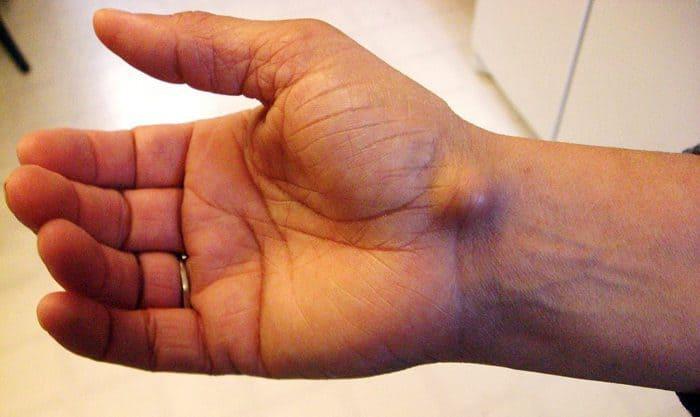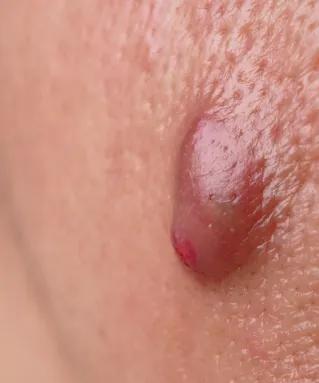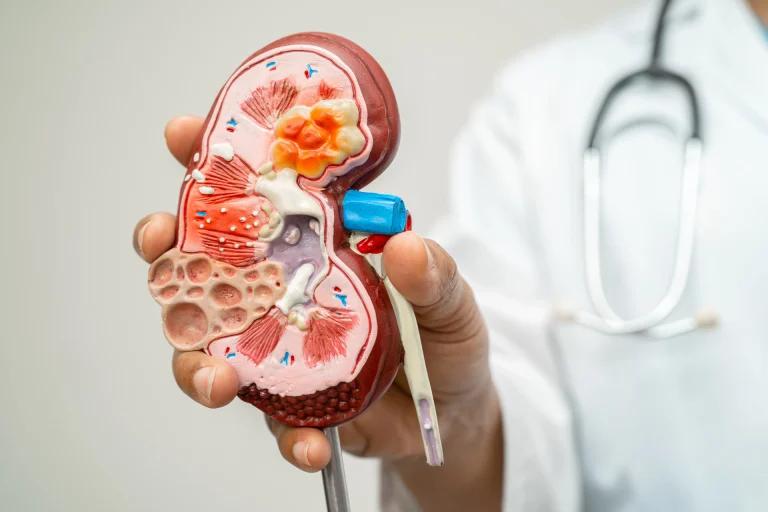
Kidney cysts, also known as renal cysts, are fluid-filled sacs that can develop on or within the kidneys. These cysts can vary in size and shape, ranging from small, pea-sized cysts to larger cysts that can be as large as a golf ball. While most kidney cysts are benign and do not cause any symptoms or health complications, some cysts can grow larger over time or become symptomatic, requiring medical attention.
In this comprehensive guide, we will delve into the various aspects of kidney cysts, including their causes, symptoms, and treatment options. We will also explore the prevalence of kidney cysts, risk factors associated with their development, and steps that can be taken to prevent their occurrence. Additionally, we will discuss the diagnostic procedures used to identify kidney cysts and the different treatment approaches available, including both non-invasive and surgical interventions.
Understanding kidney cysts
Types of kidney cysts
There are two primary types of kidney cysts: simple kidney cysts and complex kidney cysts. Simple kidney cysts are the most common and are usually harmless, whereas complex kidney cysts have the potential to be cancerous or cause health problems.
Simple renal cysts are fluid-filled sacs that develop on the surface or within the nephrons of the kidneys. They are typically small in size, measuring less than 2 inches in diameter. These cysts are usually round or oval in shape and have thin walls. Simple cysts are usually asymptomatic and do not require treatment unless they become large enough to cause discomfort or other complications.
Complex kidney cysts, on the other hand, are less common and have characteristics that differentiate them from simple cysts. Complex renal cysts have more complicated structures, including thick walls, septations, and calcification. There are different levels of complexity, ranging from category I to category IV, with category IV cysts having the highest likelihood of being cancerous.
Prevalence and risk factors
How common are kidney cysts?
Kidney cysts are relatively common, especially among older individuals. Studies have shown that approximately 1 in 10 people have kidney cysts, with the prevalence increasing to nearly 1 in 5 among individuals aged 50 and older. Men are also more likely to develop kidney cysts compared to women, with a higher incidence observed in males.
Risk factors for kidney cysts
While the exact cause of kidney cysts is not fully understood, several risk factors have been identified. Advancing age is a significant risk factor, as the prevalence of kidney cysts increases with age. Additionally, male individuals are more prone to developing kidney cysts than their female counterparts. Other risk factors include a family history of kidney cysts and certain genetic conditions, such as polycystic kidney disease (PKD).
Symptoms and complications
Identifying symptoms of kidney cysts
In most cases, kidney cysts do not cause any noticeable symptoms and are often discovered incidentally during imaging tests for unrelated conditions. However, larger cysts or those that become symptomatic can lead to various signs and symptoms. These may include dull pain or discomfort in the back or side, fever, upper stomach pain, frequent urination, and the presence of blood in the urine. It is important to note that these symptoms can also be indicative of other underlying conditions, so proper diagnosis is crucial.
Potential complications
While most kidney cysts are harmless and do not lead to complications, certain circumstances can give rise to complications. These include:
- Infection: If a kidney cyst becomes infected, it can cause fever, pain, and tenderness
- Blockage of urine: A large cyst can obstruct the normal urine flow, leading to kidney swelling and potential kidney damage
- Rupture: In rare cases, a kidney cyst may rupture, causing severe pain and blood in the urine
- High blood pressure: Kidney cysts can sometimes contribute to the development of high blood pressure
Causes of kidney cysts
The exact cause of kidney cysts is not fully understood, but several factors may contribute to their development. Kidney cysts are believed to result from abnormalities or weaknesses in the kidney’s tubules, which are responsible for filtering waste products from the blood and producing urine. These abnormalities can lead to the formation of fluid-filled sacs that eventually become cysts. While some kidney cysts may be inherited or associated with genetic conditions, most are acquired and not directly linked to family history.
Diagnosing kidney cysts
Imaging tests for kidney cysts
Kidney cysts are often diagnosed through imaging tests, which allow healthcare professionals to visualize the kidneys and identify any abnormal growths or cysts. The most commonly used imaging modalities for diagnosing kidney cysts include:
- Ultrasound: This non-invasive procedure uses sound waves to create images of the kidneys. It is beneficial for identifying the presence, size, and location of kidney cysts
- Computed Tomography (CT) Scan: CT scans provide detailed cross-sectional images of the kidneys, allowing healthcare professionals to visualize cysts and differentiate them from solid masses
- Magnetic Resonance Imaging (MRI): MRI scans use powerful magnets and radio waves to produce detailed images of the kidneys. They are particularly helpful in distinguishing between cysts and solid masses
Lab tests to assess kidney function
In addition to imaging tests, healthcare professionals may order lab tests to assess kidney function and rule out any underlying conditions. These tests may include blood tests to measure kidney function markers such as creatinine and blood urea nitrogen (BUN). Urine tests may also be performed to evaluate kidney function and check for the presence of blood or other abnormalities.
Treatment options
Monitoring and observation
Kidney cysts often do not require active treatment and can be monitored through regular imaging tests. Asymptomatic cysts that do not cause complications or affect kidney function can be observed over time to ensure stability and rule out any changes or growth.
Intervention for symptomatic kidney cysts
If a kidney cyst becomes symptomatic or leads to complications, intervention may be necessary. The choice of intervention depends on factors such as the size and location of the cyst, the severity of symptoms, and the individual’s overall health. Treatments may include:
- Aspiration and sclerotherapy: This procedure involves draining the cyst using a needle and injecting a sclerosing agent to prevent re-accumulation of fluid
- Laparoscopic surgery: In cases where the cyst is large or causing significant symptoms, laparoscopic surgery may be performed to remove the cyst or a portion of the affected kidney
Surgical procedures
Aspiration and sclerotherapy
Aspiration and sclerotherapy are minimally invasive procedures used to treat symptomatic kidney cysts. During this procedure, a healthcare professional inserts a long needle into the cyst and drains the fluid. They may also inject a sclerosing agent, such as alcohol, to collapse the cyst and prevent it from refilling with fluid. This procedure can provide relief from symptoms and reduce the risk of complications.
Laparoscopic surgery
In cases where the kidney cyst is large, causing severe symptoms, or is suspected to be cancerous, laparoscopic surgery may be recommended. This minimally invasive surgical procedure involves making small incisions in the abdomen and using specialized instruments to remove the cyst or a portion of the affected kidney. Laparoscopic surgery offers the advantage of faster recovery times and reduced postoperative pain compared to traditional open surgery.
Lifestyle recommendations
Hydration and kidney health
Staying adequately hydrated is essential for maintaining overall kidney health and preventing the formation of kidney cysts. Drinking an appropriate amount of water throughout the day helps flush out waste products and toxins from the body, promoting optimal kidney function.
Diet and nutrition for kidney cysts
While there are no specific dietary guidelines for kidney cysts, adopting a balanced and healthy diet can support overall kidney health. A diet rich in fruits, vegetables, whole grains, and lean proteins provides essential nutrients and antioxidants that promote kidney function. Limiting the intake of processed foods, sodium, and unhealthy fats can also help maintain kidney health.
Prevention strategies
Reducing the risk of kidney cysts
Since the exact cause of kidney cysts is not fully understood, it is challenging to prevent their development entirely. However, certain measures can help reduce the risk of kidney cysts or the progression of existing cysts. These include maintaining a healthy lifestyle, managing underlying conditions such as high blood pressure or diabetes, and avoiding exposure to toxins and harmful substances.
Regular check-ups and screening
Regular check-ups and screening tests can help detect kidney cysts early on and monitor any changes or growth. Individuals with a family history of kidney cysts or those with known risk factors may benefit from more frequent screenings and follow up to ensure timely intervention if necessary.
Conclusion
Kidney cysts are common fluid-filled sacs that can develop on or within the kidneys. While most kidney cysts are harmless and do not cause symptoms or complications, some cysts can grow larger, become symptomatic, or lead to other health problems. Diagnosing kidney cysts involves imaging tests and lab tests to assess kidney function. Treatment options vary depending on the size, symptoms, and complications associated with the cysts. Regular monitoring, lifestyle modifications, and timely intervention can help manage kidney cysts and prevent renal disease.
Remember, if you suspect you have kidney cysts or experience any symptoms related to kidney cysts, it is essential to consult with your healthcare provider for an accurate diagnosis and appropriate treatment plan.
Sources
- Simple Renal Cyst – StatPearls – NCBI Bookshelf
- Kidney cysts – Symptoms and causes – Mayo Clinic
- Kidney Cysts: Causes, Symptoms, Treatment & Prevention
- Simple Kidney Cysts – NIDDK
- Simple Kidney Cysts | National Kidney Foundation
Medical Disclaimer
NowPatient has taken all reasonable steps to ensure that all material is factually accurate, complete, and current. However, the knowledge and experience of a qualified healthcare professional should always be sought after instead of using the information on this page. Before taking any drug, you should always speak to your doctor or another qualified healthcare provider.
The information provided here about medications is subject to change and is not meant to include all uses, precautions, warnings, directions, drug interactions, allergic reactions, or negative effects. The absence of warnings or other information for a particular medication does not imply that the medication or medication combination is appropriate for all patients or for all possible purposes.








